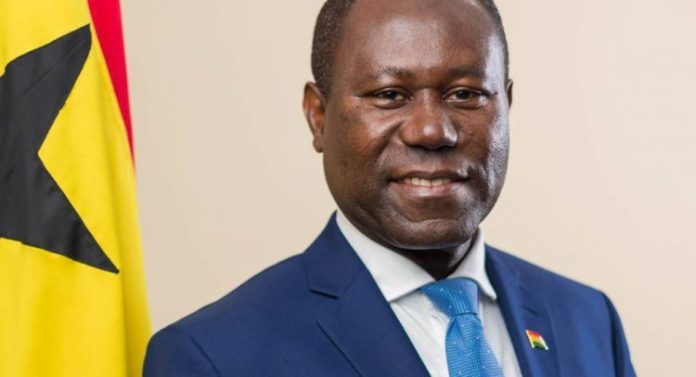The Ghana Cocoa Board (COCOBOD) is adopting a new policy of providing support services, farming products and inputs to cocoa farmers through their registered co-operatives to ensure a far more efficient and timely delivery of such products and services to all cocoa farmers across the country.
The provision of products and services through co-operatives is to ensure that adequate quantities of all products are allocated to farmers at all times and that such allocations are brought promptly to the farmers themselves upon their request, removing the need for intermediary actors.
Chief Executive of COCOBOD, Mr Joseph Boahen Aidoo said this on the occasion of the launch of cocoa farmer co-operatives in Ghana.
The launch, which was held in Kumasi, was to officially announce the policy and plans to assist farmers to form such co-operatives in their various communities across the country.
“So far, a total of over 5,000 farmer associations and groups with a total membership of 146,864 have been formed nationwide. Out of these, 512 are fully active co-operatives,” he added
To be recognised by COCOBOD as an active cocoa farmers’ co-operative, the farmers have to come together to form an identifiable group, create a documented record of their membership and executives/leaders and then be registered with the Department of Co-operatives, which has the mandate of registering farmer groups into co-operatives.
The co-operatives will then work on behalf of their members for their mutual benefits and become eligible for the direct sourcing of assistance, agrochemical, implements and extension services from COCOBOD.
With help from COCOBOD, the co-operatives will also be coached on how to engage creditors in negotiations to access credit for farming operations; learn to take over the ongoing Productivity Enhancement Programmes (PEPs) when COCOBOD exits and effectively implementing calendar-based farm activities to improve the management and preparation for flowering and pod development.
Other plans are to help the co-operatives and their member to develop the skill of business planning, financial management and administration to become self-sustaining in cocoa production and the efficient management of their cocoa businesses.
Mr Aidoo said COCOBOD was doing everything possible to maintain Ghana’s quality cocoa.
He, therefore, urged farmers not to engage in practices that will comprise the country’s cocoa standards.
“There have been concerns raised by Japanese companies about the presence of 24D, which is a harmful chemical, in some cocoa beans.” This chemical is a residue from weedicides used on cocoa farms, he said. COCOBOD has, therefore, banned the use of weedicides and is urging farmers to desist from their use as they negatively affect the quality of cocoa and destroy the land.
He revealed that “to reduce drudgery associated with weeding with manpower, the management of COCOBOD has concluded plans to assist farmers to procure slathers by October 2019”.
In his keynote address, the Deputy Minister of Agriculture in charge of Perennial Crops, George Oduro said the importance of establishing farmer co-operatives in the cocoa sector is not only limited to improving yields, but will also serve other important purposes.
According to him, one major challenge facing Ghanaian farmers is the difficulty in accessing funds to support their farming businesses. He was optimistic that when farmers form co-operatives, they will be able to establish and maintain trustworthy relationships with financial institutions, and this will give them easier access to loans.
He further noted that the realisation of a floor price for cocoa produced in Ghana, which was recently announced, is a clear demonstration that the government of President Nana Addo Dankwa Akufo-Addo remains committed to improving the living standards of cocoa farmers in the country.
He also encouraged cocoa farmers to embrace the numerous Productive Enhancement Programmes being implemented by the new administration, and further urged them to make it a point to join forces in the form of co-operatives to promote their collective wellbeing.
Source: The Finder

